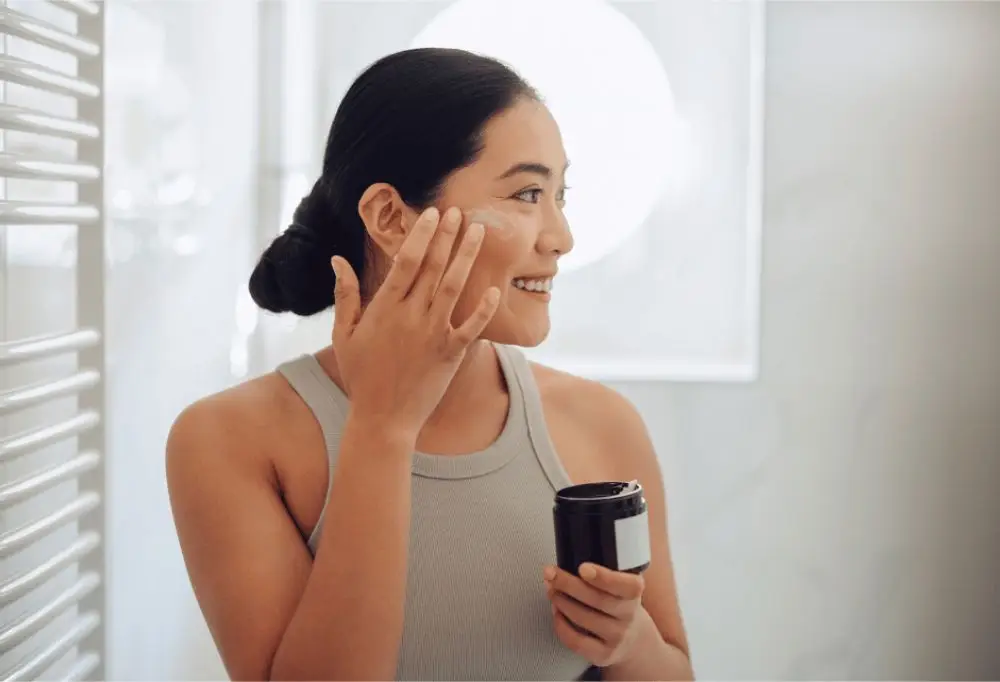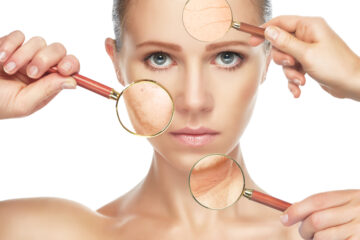In a world where we are constantly bombarded with new skincare products, it’s crucial to take a step back and consider what we’re truly putting on our skin. Our skin is our largest organ, and it absorbs much of what we apply to it. This means the ingredients in our skincare products can have a significant impact on our health and the environment. Eco-conscious consumers and beauty enthusiasts alike are beginning to scrutinize their skincare routines, opting for clean, green, and natural alternatives that promise both efficacy and safety.
In this comprehensive guide, we will explore toxic skincare ingredients to avoid and highlight beneficial alternatives that should be a staple in your clean beauty routine. By making informed choices, you can not only improve your skin’s health but also contribute to a more sustainable and eco-friendly beauty industry.
Identifying Harmful Ingredients
The Paraben Problem
Parabens are one of the most commonly used preservatives in skincare products. They prevent the growth of bacteria and extend the shelf life of products. However, parabens are known endocrine disruptors, which means they can interfere with hormone function. Studies have linked parabens to an increased risk of breast cancer and reproductive issues.
Formaldehyde and Its Releasers
Formaldehyde is often used as a preservative in skincare products, but it is a known carcinogen. It can cause allergic reactions, skin irritation, and respiratory issues. Some products may not list formaldehyde outright but include formaldehyde-releasers like quaternium-15, DMDM hydantoin, and imidazolidinyl urea.
Phthalates and Their Hidden Risks
Phthalates are used to increase the flexibility and longevity of fragrances in skincare products. These chemicals are also endocrine disruptors and have been associated with reproductive and developmental issues. They are often hidden under the term “fragrance” or “parfum” on ingredient labels, making them hard to identify.
Understanding Clean, Green, and Natural Skincare
What Does “Clean” Mean?
Clean skincare refers to products that are free from harmful chemicals and toxins. These products prioritize the safety of ingredients and transparency in labeling. Clean skincare products aim to be non-toxic and gentle on the skin while still being effective.
The Green Skincare Movement
Green skincare focuses on sustainability and the environmental impact of beauty products. This includes using eco-friendly packaging, ethically sourced ingredients, and cruelty-free testing methods. Green skincare brands often support environmental causes and work towards reducing their carbon footprint.
The Benefits of Natural Ingredients
Natural skincare products are made from ingredients derived from nature, such as plants, minerals, and botanicals. These ingredients are often packed with nutrients and antioxidants that benefit the skin. Natural products are less likely to cause irritation or allergic reactions compared to synthetic alternatives.
Must-Have Ingredients for Healthy Skincare
Aloe Vera for Hydration and Healing
Aloe vera is a powerhouse ingredient known for its hydrating and soothing properties. It is rich in vitamins, minerals, and antioxidants that help heal and rejuvenate the skin. Aloe vera is perfect for calming irritated skin and providing a moisture boost.
Green Tea for Antioxidant Protection
Green tea is packed with antioxidants that protect the skin from free radical damage and environmental stressors. It has anti-inflammatory properties that can help reduce redness and irritation. Incorporating green tea into your skincare routine can leave your skin looking radiant and youthful.
Hyaluronic Acid for Intense Moisture
Hyaluronic acid is a naturally occurring substance in the skin that has the incredible ability to retain moisture. It can hold up to 1,000 times its weight in water, making it an excellent hydrating ingredient. Hyaluronic acid helps plump the skin, reduce the appearance of fine lines, and improve overall skin texture.
Practical Tips for Making Informed Choices
Deciphering Skincare Labels
Reading skincare labels can be overwhelming, but it’s crucial for making informed choices. Look for products that clearly list all ingredients and avoid those with vague terms like “fragrance” or “parfum.” Familiarize yourself with common toxic ingredients and opt for products with short, easily recognizable ingredient lists.
Utilizing Resources for Product Safety
There are several online resources available to help you research the safety of skincare products. Websites like the Environmental Working Group (EWG) and Think Dirty offer databases where you can look up ingredients and see their safety ratings. These tools can help you make more informed decisions about the products you use.
Seeking Out Certifications
Look for certifications that indicate a product meets certain safety and ethical standards. Some common certifications include USDA Organic, Leaping Bunny (cruelty-free), and ECOCERT (natural and organic). These certifications can provide peace of mind that the products you choose align with your values.
Case Studies and Personal Experiences
Sarah’s Journey to Clean Skincare
Sarah, a 30-year-old marketing professional, struggled with persistent acne and skin irritation. After switching to clean skincare products free from parabens and phthalates, she noticed a significant improvement in her skin’s health. Sarah now advocates for clean beauty and shares her experiences on social media.
Mark’s Transition to Green Skincare
Mark, a father of two, became concerned about the environmental impact of his family’s skincare products. He decided to transition to green skincare brands that use sustainable packaging and ethically sourced ingredients. Mark’s family not only saw improvements in their skin but also felt good about supporting eco-friendly practices.
Emma’s Experience with Natural Ingredients
Emma, a beauty enthusiast, was skeptical about natural skincare products. After trying products with aloe vera and green tea, she was amazed at the results. Her skin felt more hydrated and looked more radiant than ever before. Emma now incorporates natural ingredients into her daily routine.
Conclusion
In today’s world, being mindful of the ingredients in your skincare products is more important than ever. Toxic ingredients like parabens, formaldehyde, and phthalates can have detrimental effects on your health and the environment. By opting for clean, green, and natural skincare products, you can improve your skin’s health and contribute to a more sustainable beauty industry.
Make informed choices by reading labels, utilizing safety resources, and seeking out trusted certifications. Remember, your skin deserves the best, and so does the planet. Start your clean beauty routine today and experience the benefits of healthier, more radiant skin.
For more tips and exclusive content, subscribe to our newsletter and join our community of eco-conscious beauty enthusiasts. Together, we can make a difference, one skincare product at a time.





